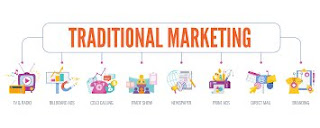Maximizing ROI with Social Media Marketing Strategies That Work
In today’s dynamic marketing landscape, businesses have a wealth of tools at their disposal. Three giants stand out: content marketing, social media marketing, and traditional marketing. Each offers unique strengths, and the key to success lies in understanding how they work together.
Content
Marketing: The Foundation
Imagine a house. Content marketing
is the foundation — strong, reliable, and built to last. It’s about creating
informative, engaging content that attracts and educates your target audience.
This could be blog posts, articles, infographics, videos, or even podcasts.
The beauty of content marketing is
its ability to build trust and establish your brand as a thought leader. By
providing valuable information that addresses your audience’s needs and
interests, you position yourself as a helpful resource, not just a company
trying to sell something.
Here are some key benefits of
content marketing:
Improved
SEO:
High-quality content optimized with
relevant keywords helps your website rank higher in search engine results pages
(SERPs), attracting organic traffic.
Lead
generation:
Valuable content can act as a lead
magnet, encouraging users to subscribe to your newsletter, download
whitepapers, or participate in webinars.
Brand
awareness:
Consistent content creation keeps
your brand top-of-mind with your target audience.
Social
Media Marketing: The Amplifier
Now, let’s add some walls to our
house. Social media marketing acts as the amplifier, taking your content and
spreading it far and wide. Platforms like Facebook, Instagram, Twitter, and
LinkedIn allow you to connect with your audience, share your content, and
foster conversations.
Social media provides a dynamic
platform for:
Engagement:
Encourage discussions, answer
questions, and build relationships with your audience.
Brand
storytelling:
Showcase your brand personality and
humanize your business.
Content
promotion:
Share your blog posts, videos, and
other content to a wider audience.
Community
building:
Create a space where your audience
can interact with each other and feel a sense of belonging.
Traditional
Marketing: The Established Presence
Think of traditional marketing as
the established, trusted neighbor on your street. It encompasses
tried-and-tested methods like television commercials, print ads, billboards,
and radio broadcasts. While often seen as “old-fashioned” in the digital age,
traditional marketing still holds value, particularly for reaching a broad
audience.
Here’s where traditional marketing
shines:
Brand
awareness:
Reach a large audience quickly and
effectively, especially for demographics less active online.
Mass
reach:
Ideal for promoting new product
launches, special offers, or large-scale events.
Credibility:
Traditional channels can build trust
and brand recognition, particularly for established media outlets.
The
Winning Formula: Integration is Key
Now, let’s imagine our house is
complete — a sturdy foundation of content marketing, amplified by social
media, and enjoying the established presence of traditional marketing. This
integrated approach is the winning formula for successful marketing in today’s
world.
Here’s how these three elements work
together:
Content
fuels social media:
Use your content as the backbone of
your social media strategy. Share blog posts, snippets from videos, and
infographics to engage your audience on social platforms.
Social
media promotes content:
Leverage social media to drive
traffic back to your website where your valuable content resides. Encourage
shares and comments to expand your reach organically.
Traditional
marketing highlights content:
Use traditional channels to promote
your content marketing efforts. Run a TV commercial highlighting a
thought-provoking blog post or feature a compelling infographic on a billboard.
Remember:
Target
your audience:
Tailor your content, social media
posts, and traditional marketing efforts to resonate with your specific target
audience.
Measure
your results:
Track key metrics across all
channels to identify what’s working and what needs tweaking.
Be
consistent:
Building a successful marketing
strategy takes time and dedication. Remain consistent in your content creation,
social media engagement, and traditional marketing efforts.
By harnessing the power of content marketing, social media marketing, and traditional marketing, you can build a strong, well-rounded marketing strategy that attracts, engages, and converts your target audience. Remember, it’s not about choosing one over the other; it’s about working together to create a marketing powerhouse.



.jpg)
.jpg)
Comments
Post a Comment